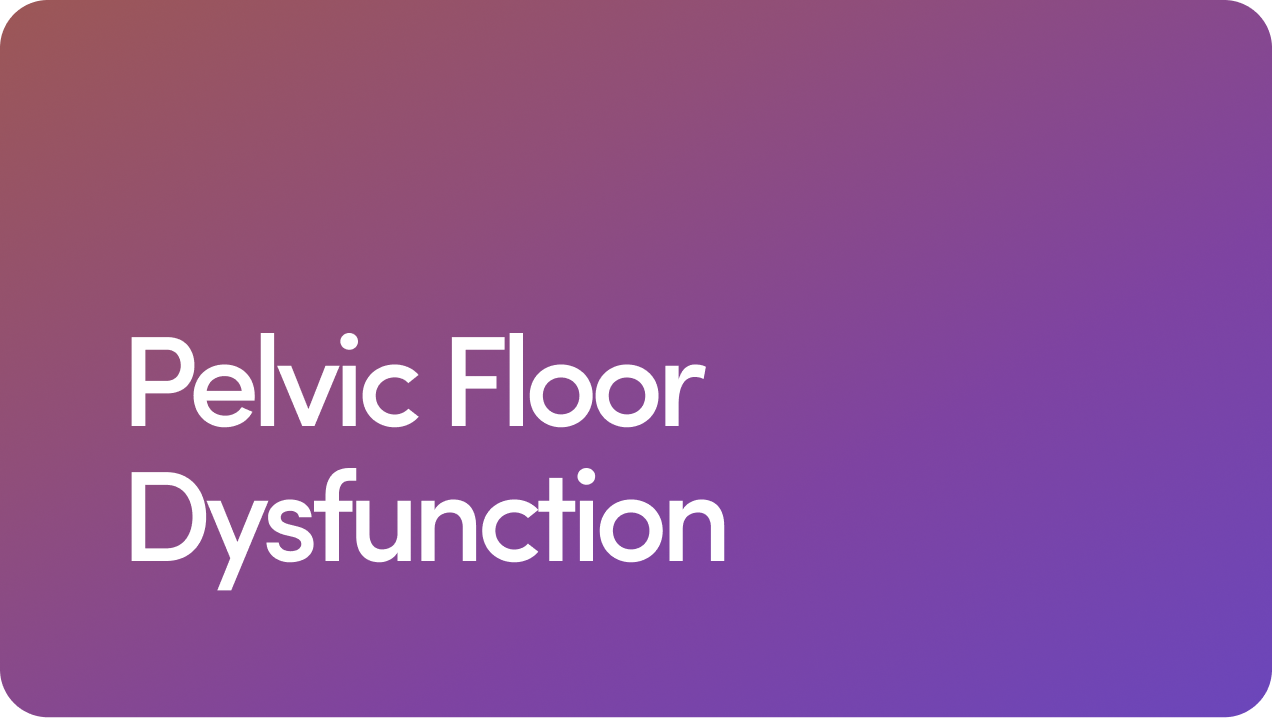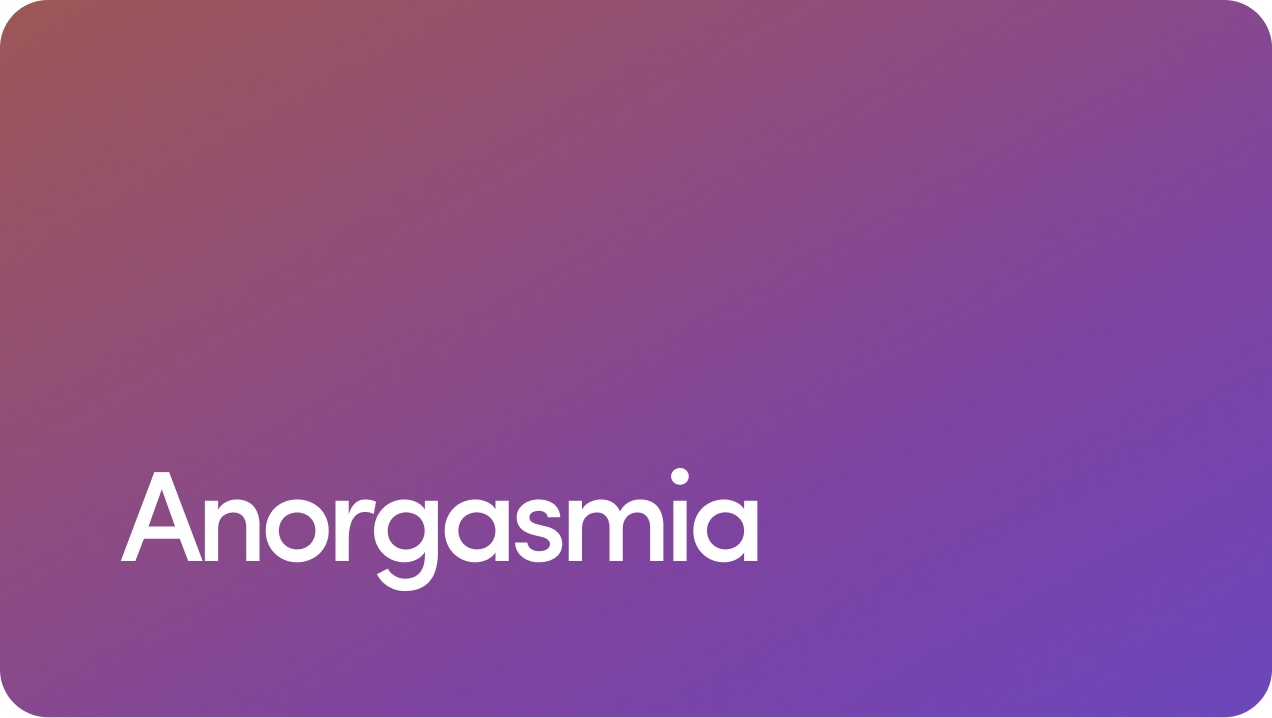Content
Your sex life, your way
What Are the Health Benefits of Folic Acid for Men?

When you think of folic acid, you might first think about its benefits for women. Indeed, getting enough folic acid during pregnancy is vital to help prevent neural tube defects in babies.
But did you know that folic acid may also have several important benefits for men as well? From sperm health to mental health, there are many potential boons to ensuring that you get enough folic acid.
If you’ve ever asked yourself "What is folic acid used for in men?", we’ve got you covered. Below, we’ll dive deeper into the possible benefits of folic acid for men.
Content
What Is Folic Acid?
Folate, also known as vitamin B9, is a water-soluble vitamin and important micronutrient. Folic acid is a synthetic form of folate (vitamin B9). You can find folic acid in dietary supplements and fortified food items like certain breads and breakfast cereals.
You may see the terms folic acid and folate used interchangeably. However, there’s a subtle difference between the two.
Folate is a general term that describes all forms of vitamin B9. This includes folate naturally found in your body and in foods as well as folic acid, the synthetic form.
Folic acid, on the other hand, is a man-made chemical that your body converts to folate during digestion.
Folate is vital for several processes in your body, including:
Producing DNA and RNA
Creating new cells
Forming new red blood cells
Breaking down and using protein
Having a folate deficiency can lead to a variety of issues, such as fatigue, mouth sores, problems with thinking and memory, and anemia. Folate deficiency is rare on its own and usually happens with other nutrient deficiencies, often due to poor diet, alcohol abuse, or digestive disorders.
Folate is an essential nutrient for all humans, including men. Here’s what we know about the benefits of supplements and foods fortified with folic acid.
May Support Sperm Health
Folate appears to play a role in maintaining sperm health. One way it may do this is by helping with sperm production, called spermatogenesis. Because folate is important for making and repairing nucleic acids like DNA, it plays an important role in cell growth and division, including in spermatogenesis.
Indeed, a 2020 systematic review and meta-analysis found that some human studies show a link between folate status and positive sperm qualities, specifically sperm concentration.
Further, one 2017 study found that low folate levels in men correlated with low sperm concentration. Low folate also reduced the expression of several genes important for making sperm.
A 2021 placebo-controlled trial found that while folic acid supplementation didn’t affect sperm quality in men with infertility, it did reduce DNA fragmentation. Further, the effects of folic acid supplementation led to a higher pregnancy rate in couples using in vitro fertilization (IVF).
There’s also some evidence that combining zinc, a nutrient involved in male fertility, with folic acid supplementation may also provide benefits. For example, one 2017 systematic review and meta-analysis found that zinc supplementation plus folic acid improved both sperm concentration and sperm shape in men with fertility issues.
However, studies are conflicting here. The results of a 2020 clinical trial found that folic acid plus zinc didn’t improve semen quality or birth rates.
In summary, research on folic acid supplementation has shown mixed results, particularly in healthy men. However, some studies suggest it may be beneficial for men with fertility issues.
Could Improve Erectile Dysfunction
Erectile dysfunction (ED) is a common men’s health issue. A recent study found that ED affects about a quarter of men in the United States and that its prevalence increases with age.
Some research indicates a connection between folate levels and ED, suggesting that supplements promoting healthy folate and vitamin levels may reduce the risk of ED. In general, the evidence is mixed on taking vitamins for ED. One 2019 study found that three months of folic acid supplementation reduced the severity of ED in men, but additional research is needed to confirm this finding.
Folate supplements are not a treatment for ED like FDA-approved medications such as Viagra.
Linked to a Reduced Risk of Heart Disease
Research suggests folic acid may reduce the risk of cardiovascular disease (CVD). CVD, which includes things like heart disease, stroke, and blood clots, is a leading cause of death worldwide. According to the World Health Organization, almost 18 million people died from CVD in 2019, making up about one-third of global deaths.
Folic acid is believed to reduce CVD risk by lowering homocysteine levels.
A 2016 systematic review and meta-analysis found that folic acid supplementation reduced the risk of stroke by 10 percent and CVD overall by 4 percent. The highest benefit was seen for people with lower folate levels and in those without preexisting CVD.
Further, a 2017 meta-analysis found that folic acid reduced the risk of stroke by 20 percent and the risk of cardiovascular events like heart attack by 11 percent. Folic acid supplements did not significantly affect the risk of coronary heart disease.
Associated With Improved Cognitive and Mental Health
Some research has also linked folic acid with better cognitive health. When we’re talking about cognitive health, we’re essentially referring to our ability to think as well as to learn and remember things.
A recent systematic review and meta-analysis found that folic acid supplements had a positive effect on cognitive health in people who had mild cognitive impairment. The researchers also found that folic acid supplementation was associated with lower levels of homocysteine, inflammation, and markers of Alzheimer’s disease. However, the data is inconsistent. Other studies have shown that taking oral supplements with vitamin B12 and folic acid did not improve cognitive function.
There’s also potential benefits for mental health. A 2022 systematic review found that folate supplements, including folic acid supplements, may have a beneficial impact when added to the standard treatment of mental health disorders like depression, bipolar disorder, and schizophrenia.
Further, a 2022 study included data from over 860,000 people and observed that folic acid supplementation was associated with a lower risk of self-harm or attempted suicide.
How Can You Get More Folic Acid?
You can get folate through your diet. It’s found in a wide variety of foods, including many fruits and vegetables (especially leafy greens like spinach), nuts and legumes, seafood, eggs, dairy products, and meat and poultry. Some foods are also fortified with folic acid, including many cereals, breads, flours, and pastas. And you can also get folic acid via dietary supplements.
If you’re concerned about getting enough folic acid, you can likely breathe a sigh of relief: Most adults are getting an adequate amount, per the National Institutes of Health (NIH).
When it comes to the recommended folic acid dosage for adults, the NIH notes that the recommended daily allowance (RDA) of folate for adult men is 400 micrograms (mcg) of dietary folate equivalents (DFE).
What are DFE, you ask? Your body absorbs more folic acid from fortified foods and supplements compared to the folate that’s present naturally in foods, so there needs to be a way to account for that. This means that 1 mcg DFE is equal to:
1 mcg of folate found naturally in foods like beef liver, leafy greens, asparagus, and beans
0.6 mcg of folic acid found in fortified foods like breads, pastas, rice, and breakfast cereals
0.5 mcg of folic acid in dietary supplements
TL;DR: You need less folic acid than folate to reach your RDA.
If you’re still unsure of how much folic acid you need, a chat with your healthcare provider is in order. They can recommend safe and effective ways to boost your folic acid intake.
Is Folic Acid Safe?
When it comes to folic acid, there can be too much of a good thing. It’s not recommended to get more than 1,000 mcg of daily folate from supplements or fortified foods.
One of the potential side effects of high doses of folic acid is that it can hide symptoms of a vitamin B12 deficiency or even make vitamin B12 deficiency symptoms worse. A severe vitamin B12 deficiency can lead to nerve damage as well as cognitive and psychological symptoms.
Another safety note for folic acid: It may interact harmfully with some medications. Examples include:
Methotrexate used to treat autoimmune disorders and cancer
Sulfasalazine used to manage ulcerative colitis
Some types of medications for seizures
If you’re nervous about taking too much folic acid, talk to your healthcare provider. They can help make sure you're still getting your RDA of folic acid and also that your folic intake won’t interfere with your medications.
Final Thoughts on Folic Acid for Men
Before we end our discussion on folic acid’s benefits for men, let’s do a brief summary on what we’ve covered:
Folic acid is a synthetic version of vitamin B9. It’s present in fortified foods and in vitamin supplements.
Folate, including folic acid, may have several benefits for men. These include potentially boosting sperm health, reducing ED, lowering the risk of CVD, and improving cognitive and mental health.
It's important to remember that supplements can't replace FDA-approved medications for potentially serious medical conditions, such as CVD. If you're considering folic acid as a supplement in addition to proven therapies, consult your healthcare provider.
The RDA of folate for adult men is 400 mcg DFE.
Compared to folate naturally found in foods, you need less folic acid in order to meet your RDA.
Taking too much folate can have negative health effects. Folate can also interact with certain medications.
If you have any lingering questions about folic acid (or folate) and men’s health, your healthcare provider is a valuable resource. They can help you determine if you’re getting enough folate in your diet and can also recommend safe ways to boost your folic acid intake if necessary.
32 Sources
- Aarabi M, et al. (2015). High-dose folic acid supplementation alters the human sperm methylome and is influenced by the MTHFR C677T polymorphism. https://pmc.ncbi.nlm.nih.gov/articles/PMC4614702/
- Allouche-Fitoussi D, et al. (2020). The role of zinc in male fertility. https://pmc.ncbi.nlm.nih.gov/articles/PMC7589359/
- Ankar A, et al. (2024). Vitamin B12 deficiency. https://www.ncbi.nlm.nih.gov/books/NBK441923/
- Azzini E, et al. (2020). Homocysteine: Its possible emerging role in at-risk population groups. https://pmc.ncbi.nlm.nih.gov/articles/PMC7073042/
- Boxmeer JC, et al. (2009). Low folate in seminal plasma is associated with increased sperm DNA damage. https://www.sciencedirect.com/science/article/pii/S0015028208013162
- Centers for Disease Control and Prevention. (2024). Folic acid: Facts for clinicians. https://www.cdc.gov/folic-acid/hcp/clinical-overview/index.html
- d’Argent EM, et al. (2021). High-Dose Supplementation of Folic Acid in Infertile Men Improves IVF-ICSI Outcomes: A Randomized Controlled Trial (FOLFIV Trial). https://pmc.ncbi.nlm.nih.gov/articles/PMC8123699/
- Elshahid ARM, et al. (2019). Folic acid supplementation improves erectile function in patients with idiopathic vasculogenic erectile dysfunction by lowering peripheral and penile homocysteine plasma levels: A case-control study. https://onlinelibrary.wiley.com/doi/10.1111/andr.12672
- Eussen SJ, et al. (2006). Effect of oral vitamin B-12 with or without folic acid on cognitive function in older people with mild vitamin B-12 deficiency: a randomized, placebo-controlled trial. https://pubmed.ncbi.nlm.nih.gov/16895884/
- Gibbons RD, et al. (2022). Association between folic acid prescription fills and suicide attempts and intentional self-harm among privately insured US adults. https://pmc.ncbi.nlm.nih.gov/articles/PMC9520442/
- Hoek J, et al. (2020). Paternal folate status and sperm quality, pregnancy outcomes, and epigenetics: A systematic review and meta‐analysis. https://pmc.ncbi.nlm.nih.gov/articles/PMC7317557/
- Irani M, et al. (2017). The effect of folate and folate plus zinc supplementation on endocrine parameters and sperm characteristics in sub-fertile men: A systematic review and meta-analysis. https://pubmed.ncbi.nlm.nih.gov/28853101/
- Kim Y-I. (2006). Folate: A magic bullet or a double edged sword for colorectal cancer. https://pmc.ncbi.nlm.nih.gov/articles/PMC1856406/
- Lam NSK, et al. (2022). The potential use of folate and its derivatives in treating psychiatric disorders: A systematic review. https://www.sciencedirect.com/science/article/pii/S0753332221013287
- Lan X, et al. (2017). Effect of supplementation with folic acid and B vitamins on cardiovascular outcomes: A meta-analysis of randomised controlled trials. https://www.thelancet.com/journals/lancet/article/PIIS0140-6736(17)33221-X/fulltext
- Li Y, et al. (2016). Folic acid supplementation and the risk of cardiovascular diseases: A meta‐analysis of randomized controlled trials. https://pmc.ncbi.nlm.nih.gov/articles/PMC5015297/
- Linus Pauling Institute. (2023). Folate. https://lpi.oregonstate.edu/mic/vitamins/folate
- Mark KP, et al. (2024). Erectile dysfunction prevalence in the United States: Report from the 2021 National Survey of Sexual Wellbeing. https://academic.oup.com/jsm/article-abstract/21/4/296/7614307
- Merrell BJ, et al. (2023). Folic acid. https://www.ncbi.nlm.nih.gov/books/NBK554487/
- Miller JW, et al. (2024). Excess folic acid and vitamin B12 deficiency: Clinical implications? https://pmc.ncbi.nlm.nih.gov/articles/PMC11288374/
- National Health Service. (2023). Symptoms: Vitamin B12 or folate deficiency anemia. https://www.nhs.uk/conditions/vitamin-b12-or-folate-deficiency-anaemia/symptoms/
- National Institutes of Health: Office of Dietary Supplements. (2022). Folate. https://ods.od.nih.gov/factsheets/Folate-HealthProfessional/
- National Institute on Aging. (2024). Cognitive health and older adults. https://www.nia.nih.gov/health/brain-health/cognitive-health-and-older-adults
- Saldanha LG, et al. (2020). Perspective: Time to resolve confusion on folate amounts, units, and forms in prenatal supplements. https://pmc.ncbi.nlm.nih.gov/articles/PMC7360441/
- Schisterman EF, et al. (2020). Effect of folic acid and zinc supplementation in men on semen quality and live birth among couples undergoing infertility treatment: A randomized clinical trial. https://pmc.ncbi.nlm.nih.gov/articles/PMC6990807/
- Suede SH, et al. (2023). Histology, spermatogenesis. https://www.ncbi.nlm.nih.gov/books/NBK553142/
- U.S. Food & Drug Administration. (2024). Folate and folic acid on the nutrition and supplement facts labels. https://www.fda.gov/food/nutrition-facts-label/folate-and-folic-acid-nutrition-and-supplement-facts-labels
- Wang M, et al. (2024). Effects of folic acid supplementation on cognitive function and inflammation in elderly patients with mild cognitive impairment: A systematic review and meta-analysis of randomized controlled trials. https://www.sciencedirect.com/science/article/abs/pii/S0167494324002164
- Wang W, et al. (2024). Dietary intakes of vitamin B6, folate, vitamin B12 and erectile dysfunction: a national population-based study. https://tau.amegroups.org/article/view/128068/html
- World Health Organization. (2021). Cardiovascular diseases (CVDs). https://www.who.int/news-room/fact-sheets/detail/cardiovascular-diseases-(cvds)
- Young SS, et al. (2008). The association of folate, zinc and antioxidant intake with sperm aneuploidy in healthy non-smoking men. https://academic.oup.com/humrep/article-abstract/23/5/1014/646098
- Yuan H-F, et al. (2017). Effect of folate deficiency on promoter methylation and gene expression of Esr1, Cav1, and Elavl1, and its influence on spermatogenesis. https://pmc.ncbi.nlm.nih.gov/articles/PMC5421833/
Editorial Standards
Hims & Hers has strict sourcing guidelines to ensure our content is accurate and current. We rely on peer-reviewed studies, academic research institutions, and medical associations. We strive to use primary sources and refrain from using tertiary references. See a mistake? Let us know at [email protected]!
This article is for informational purposes only and does not constitute medical advice. The information contained herein is not a substitute for and should never be relied upon for professional medical advice. Always talk to your doctor about the risks and benefits of any treatment. Learn more about our editorial standards here.
Felix Gussone, MD
Education
Doctor of Medicine - Ludwig-Maximilians-University, 2014
Other Certificates & Certifications
Board Certified Medical Affairs Specialist - Accreditation Council for Medical Affairs, 2024
Specialties & Areas of Focus
General Practice
Previous Work Experience
Manager, Medical Content & Education - Ro, 2021–2024
Senior Health Editor - Medium, 2019–2021
Associate Medical Producer - NBC News, 2015–2019
Production Assistant - CNN, 2015
Media Mentions & Features
Dr. Gussone has contributed widely to consumer health news media, including NBC News TODAY and NBC Nightly News, and has written about his own weight loss journey for CNN.
Why I Practice Medicine
Dr. Gussone discovered his passion for creating medical content and educating the public about health while working with CNN’s Dr. Sanjay Gupta. He realized that the media could deliver essential health information to millions, surpassing the reach of one-on-one care in a clinical setting.
Hobbies & Interests
Scuba diving, traveling, cinema, and perfume making
Related Articles
Related Conditions
 Erectile Dysfunction
Erectile Dysfunction
 Premature Ejaculation
Premature Ejaculation
 Low Testosterone
Low Testosterone
 Retrograde Ejaculation
Retrograde Ejaculation
 Pelvic Floor Dysfunction
Pelvic Floor Dysfunction
 Anorgasmia
Anorgasmia